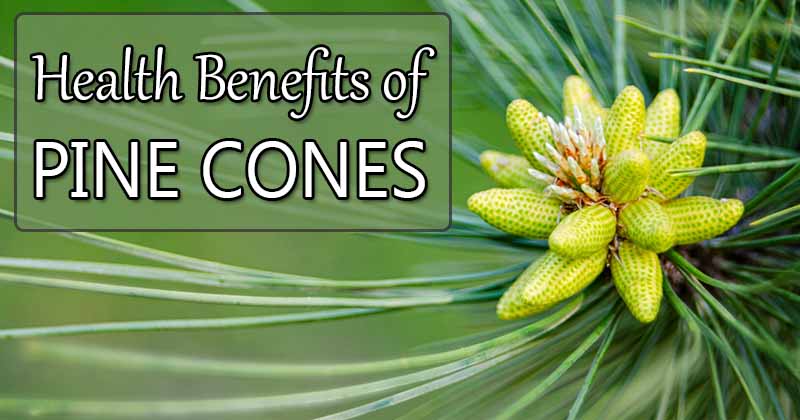Not only are pine cones edible, but they also have many health benefits. They have been used medicinally for at least 2,000 years. Its purported uses ranged from kidney ailments to treating colds. Today, there is some scientific research supporting these benefits.
Also read:
Health Benefits of Pine Cones
Note that many of these studies used pine or conifer cone extracts (cones soaked in a liquid such as alcohol to extract the medicinal properties). Extracts are generally much more potent than eating the raw plant. However, you can also get benefits from eating the plant too.
1. Stimulating Immune Response
Various studies show that pine cone improves immune response and stimulates the body to produce antibodies. Research shows it is very potent against influenza viruses and even HIV.
2. Treating Allergies
Pine cone extract has been shown to reduce levels of IgE, the antibodies involved in an allergic reaction. Thus, it is no surprise that research also shows pine cone extract can reduce allergy symptoms.
3. Antioxidants
Conifer cones contain many powerful antioxidants. The types of antioxidants vary depending on the species of conifer. Some of these antioxidants include glycosides, anthocyanin and carotenoids. The amount of antioxidants in some species is 72x higher in cone extract than in seed extract.
4. Anti-inflammatory
Pine cone extract and other conifer extracts have anti-inflammatory properties. These are mostly attributed to the high levels of polyphenol antioxidants in the cones.
5. Wound Healing
Essential oils from pine cones help heal wounds when applied topically. It may also help prevent infections in wounds as some types of conifer cones have shown antibacterial properties.
How to Use Pine Cones Medicinally
Pine cones (as well as many other conifer cones) are edible. The trick is that you should only harvest the young male cones, which appear on the trees in March or early April. Not only are the young cones rich in antioxidants, but they also contain pollen — which is considered a superfood. Male pine cones dry up quickly after releasing their pollen, so you’ve got a short window in early spring to harvest the
Female pine cones are too hard and woody to eat — they’d be a nightmare on your digestion. But you can soak them in alcohol to make a pine cone extract. It honestly tastes pretty nasty, but luckily you don’t have to drink much of it daily. It’s also possible to make extracts by soaking plants in oil, but I wasn’t able to find any reliable information about how effective the oil extraction method is with pine cones.
While a lot of brands make pine bark extract (like this one) and pine needle extract (like this one), there is only one brand (that I’m aware of) which sells pine cone extract. It is pretty pricy though (see it here) and I’m honestly not sure if it is worth it. I’d rather just eat conifer cones when they are in season or make my own extract.

